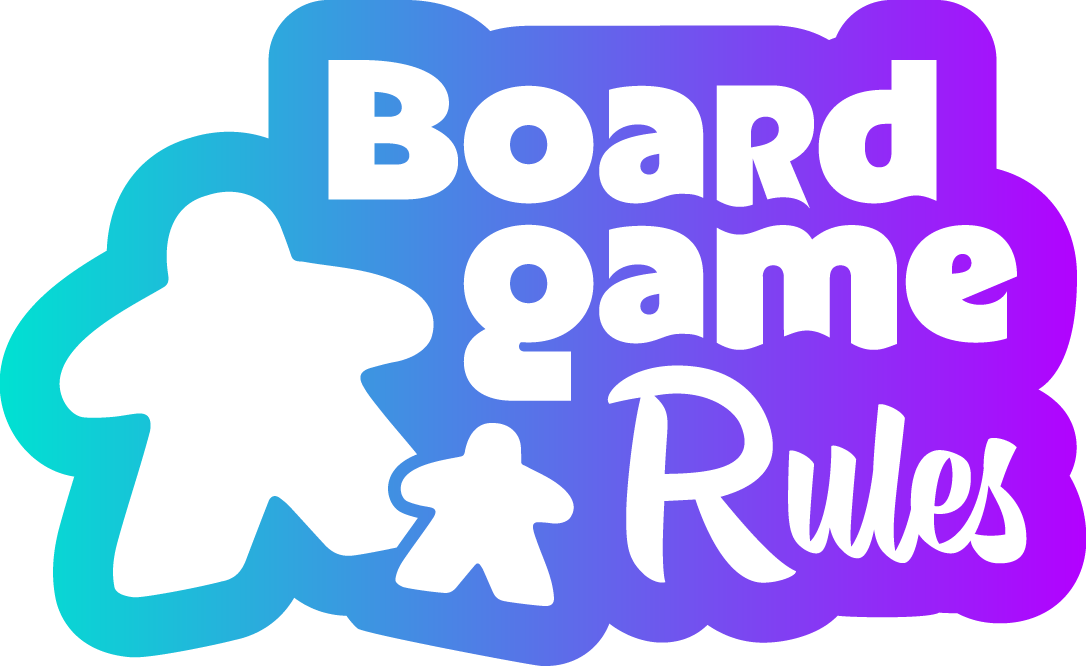High Society
1995
High Society is a strategic bidding game where players vie for wealth while avoiding pitfalls. Remember, the poorest player can't win!
30
minutes
3 - 5
player(s)
10+
Medium Light


About the game
High Society is a unique, engaging card game that takes you into the world of the wealthy elite, where extravagance and luxury are the norms. In this game, the objective is to amass the most wealth and luxury items, from precious gems to priceless artworks, and become the most affluent player.
The game is set in the high society circles of the world, where wealth and opulence are displayed and coveted. Players are thrust into this luxurious lifestyle, and their strategic decisions revolve around acquiring the most lavish possessions without going bankrupt.
Read More
Setup and rules summary
Game components Unboxing the fun!
High Society is a competitive auction game. Here is a list of the game’s components, their functions, and how they interact with the gameplay:
1. Money Cards:
- Function: These cards represent the money that players use to bid on luxury items. They are the main resource in the game.
- Interaction with Gameplay: At the start of the game, each player receives the same set of 11 money cards. They use these cards to bid on the luxury items that are up for auction. Once a money card is used in a bid, it cannot be used again.
2. Luxury Item Cards:
- Function: These cards represent the luxury items that players bid on. Each card has a value on it that adds to a player’s score if they win it.
- Interaction with Gameplay: One luxury item card is revealed at a time, and players bid on it using their money cards. The person who bids the highest wins the card and adds it to their score pile.
3. Prestige Cards:
- Function: These cards represent special luxury items that can either double a player’s score or reduce it by half.
- Interaction with Gameplay: These cards are mixed in with the luxury item cards. If a prestige card is won in an auction, it is added to the player’s score pile and its effect is applied at the end of the game.
4. Misfortune Cards:
- Function: These cards are negative cards that subtract from a player’s score.
- Interaction with Gameplay: Like the prestige cards, these are mixed in with the luxury item cards. If a misfortune card is revealed, players must bid to avoid taking the card. The player who bids the least amount of money takes the card and subtracts its value from their score at the end of the game.
5. Player Tokens:
- Function: These tokens represent each player in the game.
- Interaction with Gameplay: During bidding, players place their token on the table to indicate they are still in the bidding process. They remove their token when they no longer wish to bid or cannot bid any higher.
Game setup Lay it out, line it up, let’s go
High Society is an exciting auction-based board game designed by Reiner Knizia. The game is simple to set up and offers a thrilling gaming experience for 3 to 5 players. Here’s a detailed, step-by-step guide on how to set up ‘High Society’.
Step 1: Prepare the Game Components
- Firstly, lay out the game components. The game comes with a deck of cards with values ranging from 1 to 10, two double cards, and three special cards which are the x2 card, the half card, and the zero card.
- Shuffle the deck and place it face down in the middle of the table. This will serve as the draw pile.
Step 2: Distribute the Currency Cards
- Give each player a set of 11 currency cards. These cards are in denominations of 1,000,000 to 25,000,000.
- The currency cards will be used by players to bid on the luxury items during the auction rounds.
Step 3: Determine the First Player
- Determine the first player by any method you prefer. The first player will be the one to begin the first auction round.
Step 4: Begin the Game
- The first player turns over the top card from the draw pile to begin the first auction round.
- The game then proceeds clockwise from the first player.
In ‘High Society’, there are no specific player roles. All players have the same goal, which is to end the game with the highest total value of luxury items. However, there’s a twist! The player who has spent the most money on bids is immediately out of the game, regardless of the value of their luxury items. So, players must bid wisely to attain the highest value without spending the most money.
The game’s random elements come from the draw pile. You never know what card will be drawn next. It might be a high-value luxury item, a low-value item, or even a special card that can double your score or cut it in half. The presence of these elements adds a layer of unpredictability and excitement to the game.
Game flow Round and round we go
High Society is an auction-style card game designed by Dr. Reiner Knizia. Players represent the elite of society, competing to acquire the most valuable collection of luxury items while avoiding bankruptcy. The game is played in several rounds until the deck of cards is exhausted. Here are the detailed stages and actions performed at each stage:
1. Preparation Phase:
- Shuffle the Deck: All the luxury item cards are shuffled, and the deck is placed face-down at the center of the table.
- Distribute Currency: Each player receives a set of 11 money cards with different denominations.
2. Auction Phase:
- Reveal Item: The top card from the deck is turned face up, revealing a luxury item for auction.
- Bidding: Starting with the player on the dealer’s left and moving clockwise, players either place a bid or pass. Bids must be higher than the previous bid and can only be made with the player’s available money cards. Once a player passes, they cannot re-enter the bidding for that item.
- Winning the Auction: The player who places the highest bid wins the auction. They give up their bid amount in money cards, placing them in a discard pile, and take the auctioned item card, placing it in front of them. If all players pass without bidding, the item card is discarded.
3. End of Round:
- Preparation for Next Auction: The next card from the deck is turned face up. This begins a new auction phase.
- End of Round Conditions: The round ends immediately if a disaster card is drawn. The player with the lowest total bid amount loses one of their luxury items. If there is a tie for the lowest bid, all tied players lose a card. The round also ends if there are no more cards in the deck.
4. Game End and Scoring:
- Game End: The game ends when all the cards have been auctioned or discarded.
- Bankruptcy: The player who spent the most money overall is declared bankrupt and is immediately out of the game, regardless of the value of their luxury items.
- Scoring: Each remaining player adds up the value of their luxury items. The player with the highest total wins. In case of a tie, the player who spent the least money wins.
Players'turn One turn to rule them all
High Society is a bidding game designed by Reiner Knizia where players aim to acquire the highest value lifestyle cards without going broke. Here’s a detailed breakdown of a player’s turn:
During a player’s turn in ‘High Society’, the player can carry out one of the following actions:
- Draw a Card: At the start of each round, the current player will draw a card from the deck and place it in the center for all players to see. The value and type of card drawn can significantly impact how the round plays out.
- Bid on a Card: After a card is revealed, players can bid on that card. The player who drew the card starts the bidding. Players can increase the bid on their turn by placing one or more of their money cards face up on the table.
- Pass: If a player decides not to bid on a card or can’t top the current bid, they can choose to pass. Once a player passes, they cannot re-enter the bidding for that card. The strategic decision to pass can allow the player to save money for future rounds.
- Winning a Bid: The bidding ends when all but one player have passed. The player who has the highest bid wins the card and places it in front of them, discarding their bid to the bank. This player cannot bid on the next card.
Note: Players cannot draw a card if there is already one in the center of the table.
The game continues in this way, with players drawing cards, bidding, or passing until all the cards are sold. The player with the highest total value of lifestyle cards wins, provided they aren’t the player with the least money left. If they are, they automatically lose, regardless of their card total.
Therefore, in ‘High Society’, the key strategic choices revolve around bidding: deciding when to bid, how much to bid, when to pass, and importantly, managing your resources to avoid ending up with the least money. This makes the game a delicate balance of aggression and conservatism, risk and reward.
End of the game All good games must come to an end
The game of ‘High Society’ ends when the last auction card is revealed and auctions are concluded. This signals the end of the game, and players must then proceed to the final scoring phase. The player with the highest total value of auction cards wins the game.
Victory Conditions:
- The primary victory condition in ‘High Society’ is to have the highest total value of auction cards at the end of the game.
- However, there is an additional condition. If a player has the lowest amount of money left after all auctions have concluded, they are immediately disqualified from winning, regardless of the value of their auction cards.
Actions before Final Scoring:
- Reveal Auction Cards: Players must reveal all the auction cards they have won throughout the game.
- Calculate Card Value: Players then add up the total value of their auction cards.
- Check for Disqualification: Before determining the winner, players must reveal their remaining money. The player with the least amount of money is disqualified from winning, even if they have the highest total value of auction cards.
- Declare the Winner: The player with the highest total value of auction cards (and who is not disqualified) is declared the winner. In case of a tie, the player with the most money left wins.
Scoring Did you outsmart your rivals?
In the board game ‘High Society’, the scoring system is designed to reflect the players’ abilities to acquire the most valuable lifestyle cards without spending all their money. Here’s a detailed break-down of how points are awarded and tie-breaking rules.
Point Accumulation:
-
Each player starts the game with a set of money cards with various denominations. Throughout the game, players bid on lifestyle cards that come with certain point values. The highest bidder gets the lifestyle card.
-
At the end of the game, each player adds up the point values of all the lifestyle cards they have won. The sum of these points forms the player’s initial score.
-
However, there are also negative lifestyle cards which deduct points from the player’s score. These cards are usually bid on to avoid them, and the player with the lowest bid gets the negative card.
End Game and Tie-Breaking Rules:
-
The game ends when all the lifestyle cards have been auctioned off. At this point, the player with the least amount of money left is immediately eliminated from the game. Even if this player has the highest point score, they are out of the game.
-
After any such player is removed, the remaining players compare their scores. The player with the highest score wins.
-
In case of a tie, the player among the tied players who has the most money left wins. If there is still a tie, then all tied players share the victory.
Particular Cases and Exceptions Wait… is that legal?
‘High Society’ is a bidding and auction game designed by Reiner Knizia. Though the game’s rules are straightforward, there are a few special rules and exceptions that players need to be aware of. These can dramatically affect gameplay and the final outcome.
The Game End Rule:
- In ‘High Society’, the game does not end when the last card is auctioned. Instead, the game ends when a certain card, called the ‘luxury’ card, is drawn. This card is shuffled into the last three cards of the deck, making the game’s length slightly unpredictable.
The Bankruptcy Rule:
- If a player spends all of their money, they are not out of the game. However, they are not allowed to bid on any further auctions. This can be a critical strategic decision, as winning cards is necessary to win the game, but spending all of your money can leave you vulnerable.
The Lowest Money Rule:
- At the end of the game, the player with the least money is automatically disqualified, regardless of the value of their cards. This rule can be easy to forget but has a significant impact on the game’s strategy, as players must manage their money carefully to avoid disqualification.
The Negative Cards:
- There are three cards in the game with negative values. These are the only cards in the game for which the auction works differently. Instead of players bidding to take these cards, they bid to avoid taking them. The bidding starts with the player who drew the card and continues until only one player hasn’t passed. That player must take the card and pays nothing.
The Double Value Card:
- One card in the deck doubles the value of all other cards a player has won. This card can dramatically increase a player’s score but is a risky investment as it has no value on its own.
The Tie-Break Rule:
- If two or more players tie for the highest score at the end of the game, the player with the most money left wins the tie. This rule underscores the importance of managing your money effectively throughout the game.
Tips and tricks Play smarter, not harder!
High Society is an intense bidding game where players must strategize carefully to acquire the highest value cards while conserving their money. Here are some tips, strategies, and common mistakes to avoid when playing High Society.
Advanced Strategies:
- Keep Your Opponents Guessing: Avoid showing your strategy too early in the game. Keep your bids unpredictable to keep your opponents on their toes.
- Value of Cards: Remember the value of cards is more important than the quantity. It’s better to have fewer high-value cards than more low-value cards.
- Track Opponents’ Money: Keep an eye on how much money your opponents have and how much they’ve spent. This can guide your bidding decisions.
- Save Money for Negative Cards: You should always have some money reserved for when negative cards come up. This allows you to bid to avoid them.
Beginner Tips:
- Start Slow: As a beginner, you might want to hold back on bidding high amounts early in the game. This will give you a feel of the game and keep you in play longer.
- Understand Value: Take some time to understand the value of the cards before you start bidding. Remember, the player with the highest total in cards wins, not the one with the most cards.
- Avoid Going Broke: Remember, a player who runs out of money immediately loses, regardless of the value of their cards. It’s crucial to manage your money wisely.
Common Mistakes to Avoid:
- Spending All Money Early: A common mistake is to spend all your money early in the game. Try to conserve your money so you can bid on valuable cards later in the game.
- Forgetting About Negative Cards: Some players forget about the negative cards that can come up. Always keep some money aside to bid on these cards if you need to avoid them.
- Underestimating Opponents: Don’t underestimate your opponents’ strategies or money. Always keep an eye on what they’re doing and plan your strategy accordingly.
Ways to Optimize Gameplay:
- Practice Makes Perfect: The more you play, the more you’ll understand the game’s nuances and develop your strategies. Don’t get discouraged if you lose initially, use it as a learning experience.
- Stay Focused: High Society requires concentration and strategic thinking. Stay focused throughout the game, and remember to keep track of your opponents’ actions.
- Adapt Your Strategy: No single strategy will win every game. Be ready to adapt your strategy based on the cards that come up and the actions of your opponents.
